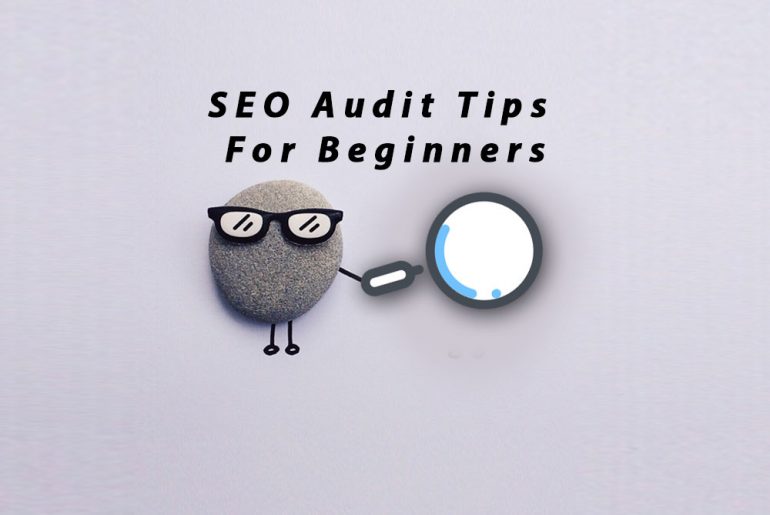Updated April 23rd, 2025
Table of Contents
How to Perform an SEO Audit: Tips For Beginners 2025-26
Do you know that Search Engine Optimization (SEO) problems may be on your website without you realizing it? Regardless if you’re producing high-quality content on your website, there’s still a tendency that SEO technical issues can arise, which will definitely lower your site’s search engine result page’s ranking (SERP).
Some websites even get penalized because of bad SEO. Or worse, your site becomes invisible to Google and its millions, if not billions, of users.
Did you forget to put a no-index tag? Do you have duplicate content? Have you placed excessive H1 tags? Found a faulty robots.txt file? Or are your pages loading very slowly? All of these things can bring your site’s search ranking down.
So, what can you do to solve or prevent such a horrible thing from happening? The answer is a technical SEO audit. It’ll help you identify issues that might keep your website from getting a good ranking. SEO content writing Perth, or in any part of the world, is one thing, but ensuring that all components of your website work efficiently is another. Determining the root cause of your site’s poor performance can save you a lot of frustrations.
The problem is that there’s a lot of SEO audit methodology available over the internet, and implementing them can be daunting, especially to newbie webmasters.
Whether you’re a business owner who wants to make your brand more visible or a service provider trying to help a client land on Google’s first page, it can be challenging to know where and how to begin with all the options available.
Which things should you prioritize? How in-depth should the analysis be? What can SEO tools help you gather the most useful information?
This post presents an SEO audit checklist to successfully identify SEO problems on your website. It doesn’t matter if you’re already a seasoned SEO specialist or a small business owner trying to do search engine optimization yourself, the discussion here will help you create a path to organic search supremacy.
Take note of these SEO audit practice tips:
Select An SEO Audit Tool
First things first, you have to find a site audit tool to help you carry out the succeeding steps that this post will tackle. There are plenty of tools out there, such as SEM Rush, Screaming Frog, or Sitebulb.
Each of the tools available over the internet brings advantages and disadvantages, so it’s best to weigh your options carefully and find out which suits your needs better.
Most of the tools in the market are premium, which means that you have to pay a specific amount to use them. Of course, this might mean some additional costs in your budget, but most of them guarantee accurate results. They’re known for being thorough, comprehensive, and easy-to-use, which is quite beneficial to the user.
However, the paid ones are known for being accurate, thorough, comprehensive, and easy-to-use, so they’re always a bang for the buck, especially considering all the benefits that they can bring to you or your clients.
Many people commit the mistake of settling with free tools, which is something that you have to avoid doing. The difference between a paid SEO tool and a free one is massive in terms of reliability and capability. As you’d expect, free tools lack a lot of features and are not built for accuracy. In the long run, you might end up making wrong decisions which could be costly.
Always remember that using an audit tool or a combination of several ones is the best way to identify issues your website currently faces. Having two or three tools at your disposal ensures more accurate results. With this, you’ll also have a reliable system to detect your website issues.
SEO tools can also generate a report for you to get a clear view of the problems that need some fixing. Thus, it’s much better to resort to an SEO tool that gives you accurate and reliable results.
Crawling Your Website
Whether you know it or not, search engines make use of crawlers, also known as search spiders, to index your website’s contents. However, what most people don’t know yet is that you can also utilize crawlers to find out what’s going on under the hood of your website.
One excellent crawler tool you can use is Screaming Frog, which is probably what most SEO experts will recommend. You can use it for free, but paying a premium for it will give you more and far better functionalities.
One of the best things to do with a crawler tool is to set it to mimic Googlebot for smartphones. Such a method will help you check the technical issues your website will have when accessed on a mobile device.
Since Google uses this to determine your ranking in the search results, you can also use it to simulate the same. You can actually use it from time to time to see your website’s performance and sort out any issue before they grow bigger.
Find Website Technical Errors
When talking about SEO audit, most people will immediately think about technical issues. These issues can harm the SEO aspect of your website.
However, fixing these errors isn’t always about search engine optimization. Sometimes, it’s all about helping your site to run more smoothly and become more user-friendly. Remember, having a user-friendly site means you’ll attract more visitors. On the other hand, a website with loads of errors can be frustrating to the user and Google’s algorithms might detect such experiences. If that happens it could hurt your overall search engine results rankings.
And, it’s the reason why SEO audits are essential for all website owners, and you should carry them out regularly.
Some of the errors that you have to find out with the help of your audit tool include broken links, robots.txt file, broken images, mobile-friendliness, page, site load times, XML sitemap status, HTTPS status, and crawl errors.
Most of these errors are simple to fix in a way that you can do the fixing on your own. But, if you don’t have time or the know-how, you can hire an SEO expert for more accurate and better results.
Even only checking a few of these issues and fixing them will improve the user-friendliness and online presence of your website. Take note that usability has a direct impact on SEO, as well.
Analyze Website Design And User Experience
One of the essential factors that SEO audit tools look into is the design and user-friendliness of your website. As already mentioned above, UX (user experience) is one crucial consideration that the search engine takes when determining the rank of your website.
And, user-friendliness also gives visitors a comfortable and enjoyable experience while staying on your website.
Both design and UX are essential to search engines and take into account how users interact with your website, how you communicate with your site users, how long visitors stay on your website, and whether they convert into leads, in the case of e-commerce websites.
Page depth and site navigation are components that indicate whether your website is hard or easy to use. For example, it’s ideal for the majority of your content to be only three or fewer clicks away from your homepage.
Conduct an audit to find issues with UX and design. Then, work with a web designer or UX expert to optimize your site.
Assess The Content Of Your Website
Content will always be an essential component of search engine optimization. Your focus keywords in your content and performing an SEO audit will help you identify whether or not the keywords will deliver results. If they bring positive results, an audit lets you know which pages have ranked for your focus keywords.
You also have to avoid duplicate content. What’s duplicate content, by the way? It’s content that may be very closely similar to another one on your website.
Search engines, like Google, want every page on your site to serve a specific purpose. So, when duplicated content exists on your website, it’s an indication to the search engine that the webmaster hasn’t taken the time to come up with unique content, which can have negative effects on your SEO rankings.
Conclusion
Website optimization requires regular SEO audits. Such a process will help webmasters identify issues as they arise and stay on top of their website maintenance before the problem becomes too much to manage, negatively impacting your search ranking.
The best SEO audit practices discussed above will help you tackle website problems one error at a time and make sure that your site is set up for search engine optimization success.












4 Comments
Thanks for taking the time to talk about this, I feel strongly about it and really like mastering more on this subject. If feasible, as you acquire experience, would you mind updating your blog with much more information and facts? It is very helpful for me.
Awesome Blog
informative tips for seo
You are share very informative and essential knowledge which is tips about SEO audit. website audit is very significant for SEO. I worked in SEO agency NYC and I know its importance.